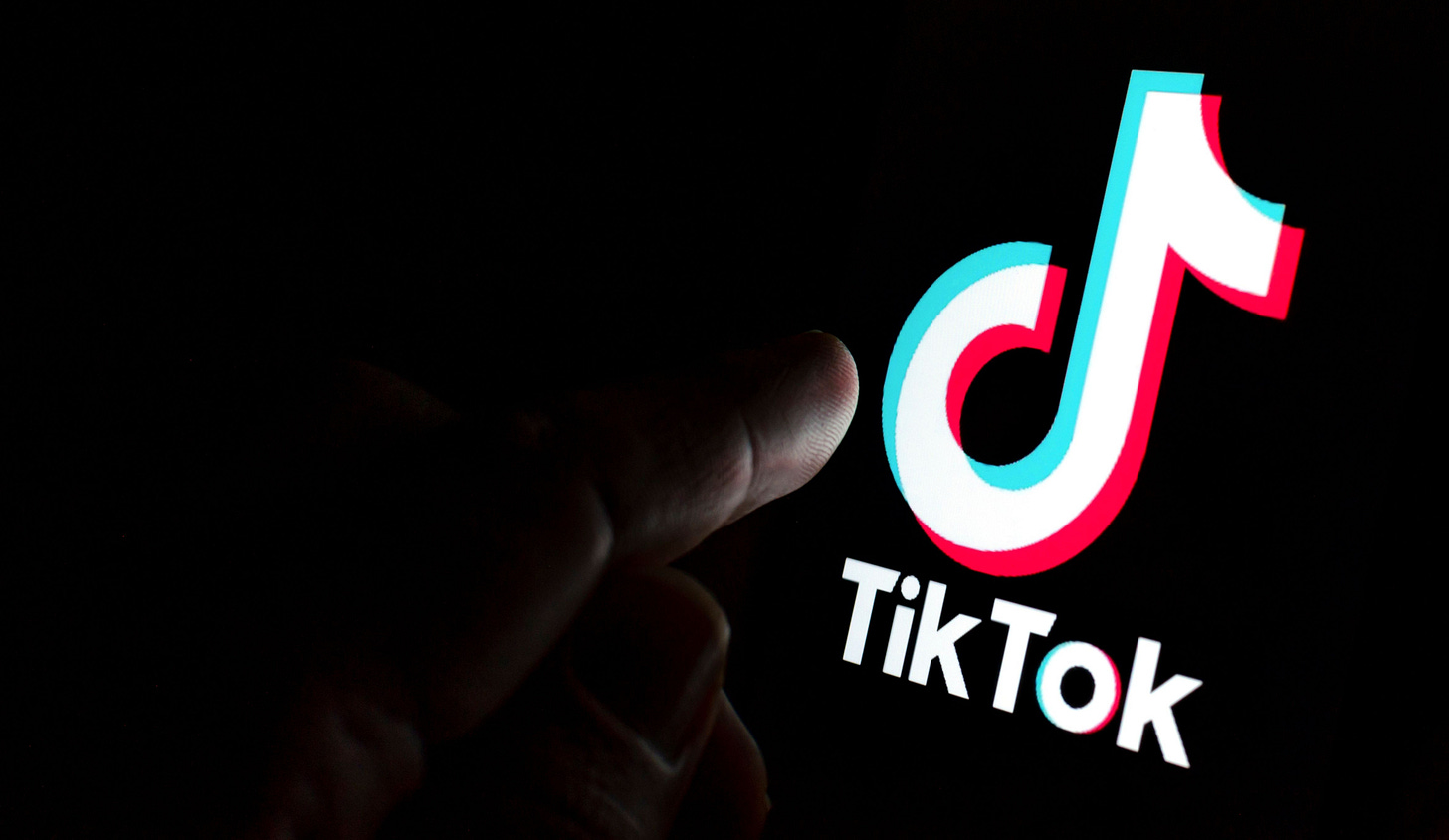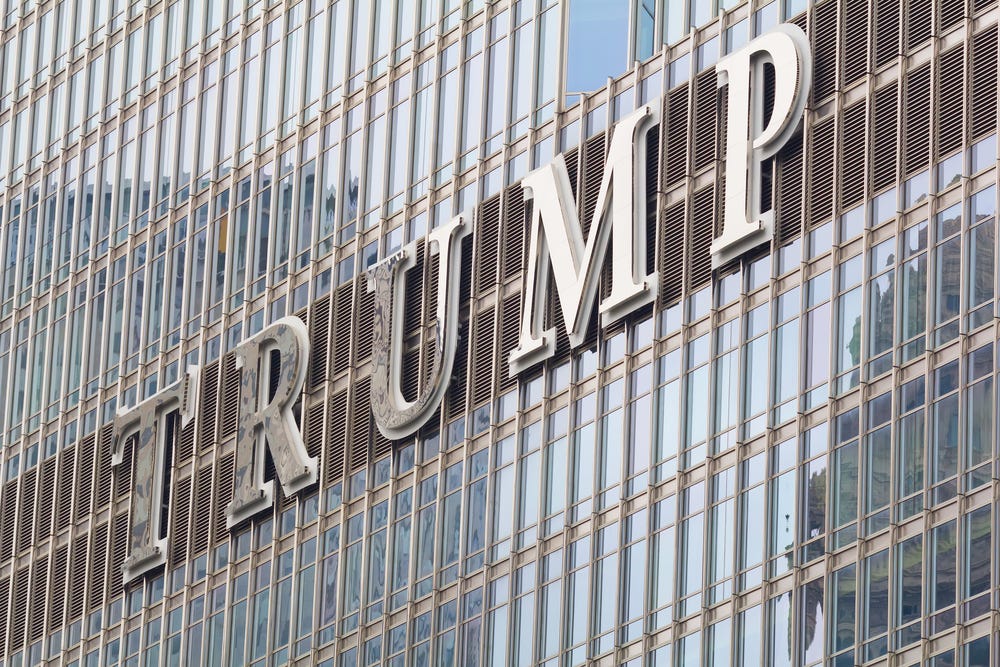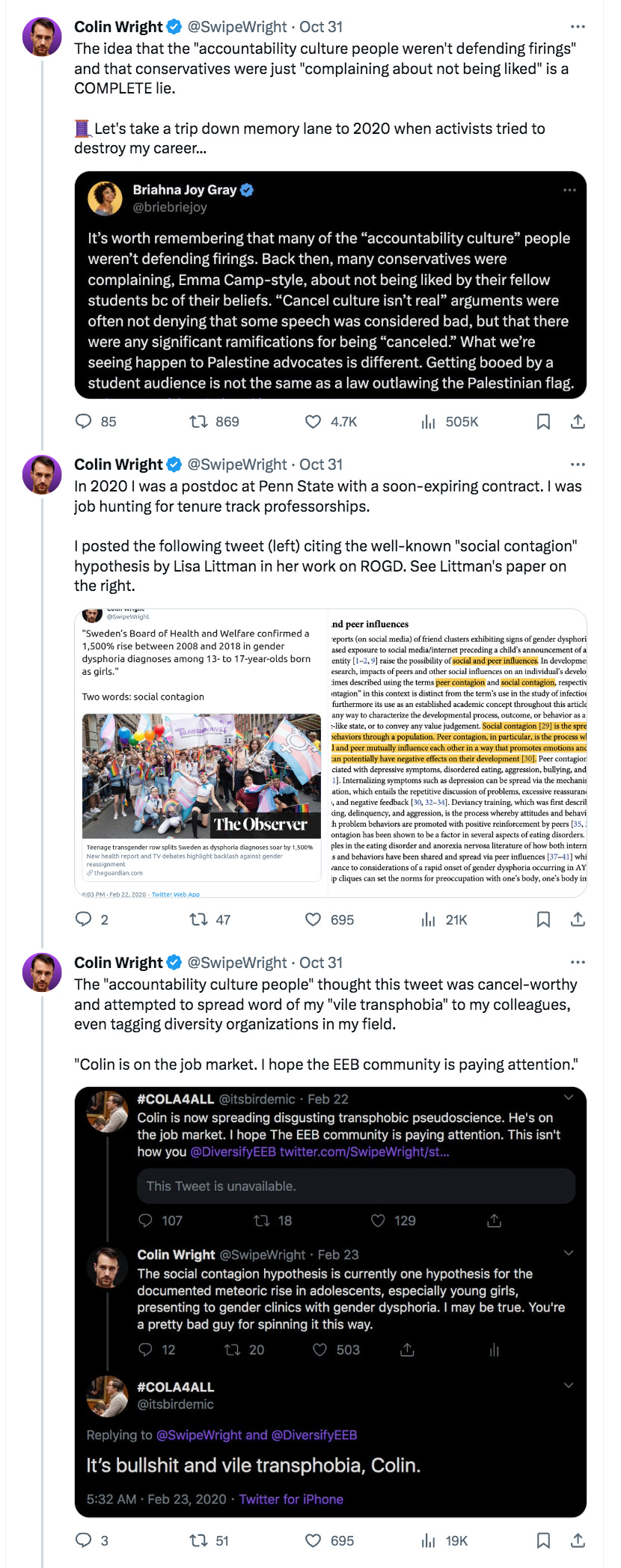E-Pluribus | November 2, 2023
The TikTok trap; how to chase voters away; and what the Trump trial means for the First Amendment.
A round-up of the latest and best musings on the rise of illiberalism in the public discourse:
Mike Gallagher: Why Do Young Americans Support Hamas? Look at TikTok.
Concerns about the popularity of China’s TikTok app among young people are nothing new. But the current conflict in the Middle East has Republican Rep. Mike Gallagher particularly worried. Writing for The Free Press, Gallagher says the propaganda that has generated sympathy for Hamas is just a sign of worse things to come.
How did we reach a point where a majority of young Americans hold such a morally bankrupt view of the world? Where many young Americans were rooting for terrorists who had kidnapped American citizens—and against a key American ally? Where were they getting the raw news to inform this upside-down world view?
The short answer is, increasingly, via social media and predominantly TikTok. TikTok is not just an app teenagers use to make viral dance videos. A growing number of Americans rely on it for their news. Today, TikTok is the top search engine for more than half of Gen Z, and about six in ten Americans are hooked on the app before their seventeenth birthday. And it is controlled by America’s foremost adversary, one that does not share our interests or our values: the Chinese Communist Party (CCP). TikTok’s parent company, ByteDance, is Chinese, and in China there is no such thing as a private company. As if to underscore the point, ByteDance’s chief editor, Zhang Fuping, is also the boss of the company’s internal Communist Party cell.
We know of TikTok’s predatory nature because the app has several versions. In China, there is a safely sanitized version called Douyin. That version, using much of the same technology, shows kids science experiments and other educational content, and its use is limited to forty minutes per day. Here in America, the application’s algorithm is exquisitely tuned to prioritize polarizing outrage and addictive, brain-numbing nonsense (at best) and dangerous propaganda (at worst). Put differently, ByteDance and the CCP have decided that China’s children get spinach, and America’s get digital fentanyl.
And we are absolutely hooked, with 16 percent of teens using it “almost constantly.” Today, 69.7 percent of Americans aged 12–17, 76.2 percent aged 18–24, and 54 percent aged 25–34 use TikTok. By tweaking the TikTok algorithm, the CCP can censor information and influence Americans of all ages on a variety of issues. It can shape what facts they consider accurate, and what conclusions they draw from world events.
If you doubt that the CCP would introduce bias—against Israel, against Jews, against the West, or anything else—into apps under its de facto control, consider that on October 31 The Wall Street Journal reported that Chinese web platforms Baidu and Alibaba have wiped Israel off the map—literally. The two most widely used mapping programs in China show the outlines of Israel’s territory but do not label it as Israel, and may not have for some time.
Read it all.
Pamela Paul: The Democrats Are Their Own Worst Enemy
The rolling, public implosion of the Republican party would be an ideal time for their Democratic rivals to make deep inroads into the GOP’s base. But in her New York Times newsletter, Pamela Paul says Democrats are squandering their opportunity with an addiction to “virtue-signaling, box-checking” progressivism.
“We’ve had this peculiar situation where the reigning power in the Democratic Party has been between progressive social organizations and the neoliberal business elite,” [John B.] Judis told me when I spoke to him last week. The majority of Americans are feeling left behind.
This bodes ill for Democrats. As he and [Ruy] Teixeira write in the book, “The Democratic Party has had its greatest success when it sought to represent the common man and woman against the rich and powerful, the people against the elite, and the plebians against the patricians.”
[. . .]
Democratic leaders seem too willing to settle for a kind of cheap progressivism — a carbon-neutral, virtue-signaling, box-checking update on what was once called limousine liberalism. But the Democratic Party cannot win and America cannot flourish if it doesn’t prioritize the economic well-being of the American majority over the financial interests and cultural fixations of an elite minority.
[. . .]
The moral values may differ at each extreme of the two parties, but their efforts to moralize can sound an awful lot alike to many Americans. Even though Democrats themselves are adopting “a pretty aggressive way to change the culture,” Teixeira told me, the Democratic Party acts as if anyone who reacts against the assumptions of its progressive wing is completely off base.
“There’s a certain amount of chutzpah among Democrats to assume that it’s only the other side pursuing a culture war,” he said.
For too long, the Democratic Party depended on shifting demographics to shore up its side. Then it relied on the horror show of the G.O.P. to scare people onto its side. Both have been an effective and damaging distraction. As Judis and Teixeira put it, Democrats “need to look in the mirror and examine the extent to which their own failures contributed to the rise of the most toxic tendencies on the political right.”
Read it all here.
Philip Hamburger: The First Amendment Threat in the Trump Civil Case
For foes of Donald Trump, it’s easy to believe that he deserves whatever he gets in court. In the Wall Street Journal, however, Philip Hamburger writes that Trump’s opponents should be careful what they wish for, as they are protected by the same First Amendment that should protect the former president.
New York’s Attorney Gen. Letitia James has charged Mr. Trump under the state’s Executive Law for allegedly overstating his business’s real-estate assets. The statute, however, has long been constitutionally suspect. Although historically only courts or their grand juries could issue subpoenas, the law grants the state’s attorney general a subpoena power to fish through private documents. Worse, the statute authorizes Ms. James to bring a civil-fraud suit for inaccurate statements discovered in the process.
Common-law fraud doesn’t punish mere inaccuracy. It requires the plaintiff to prove the defendant knowingly made a false statement of material fact with intent to deceive, and that the victim was injured by his reliance on the false statement.
The Executive Law, by contrast, defines fraud to include something as slight as a “false pretense” in the course of business—adding only that the statement be “repeated” or otherwise “persistent.” Whereas the degree of culpability typically required for fraud is intent to deceive, the Executive Law requires neither intent, recklessness or negligence. This means the law can punish mere untruth without any prior culpability or subsequent concrete harm.
[. . .]
The statute is utterly disproportionate, authorizing the court to shut down a defendant’s entire business—simply for inaccuracy. The law is so draconian that few have challenged it. What defendant would want to dispute the attorney general’s authority given the risk of retaliation?
Mr. Trump’s case could therefore become an important precedent. In U.S. v. Alvarez (2012), the Supreme Court emphatically declared that the Constitution “rejects the notion that false speech should be in a general category that is presumptively unprotected.” The court now needs to clarify that laws against mere inaccuracy are fully protected, even when regulating business speech. This is especially necessary in New York, where attorneys general have interpreted the Executive Law to reach dissenting scientific and political opinion, notably in their proceedings against ExxonMobil for its climate research.
To understand the Executive Law’s threat to free speech, consider that even perjury isn’t defined simply in terms of falsity. The government must prove that a defendant willfully recited under oath what he didn’t believe to be true. The crime isn’t merely the falsity of his statement but also his intent to tell a falsehood.
The subsequent harm is generic—i.e., damage to society, not a concrete injury to a specific person—but the government must show, beyond a reasonable doubt, that the defendant acted with bad intent. Moreover, perjury’s domain is confined. Rather than generally regulate private speech, perjury is limited to sworn court testimony and, by extension, statements made to officials.
Strict liability offers another contrast. This is liability without culpability—that is, without intent, recklessness or mere negligence. It ordinarily is reserved for especially dangerous conduct, not words alone, and requires proof that the hazardous conduct caused actual harm. The Executive Law imposes strict liability simply for words, without proof of tangible damage to any individual.
Read the whole thing.
Around Twitter (X)
Colin Wright begs to differ with those who claim that “accountability culture” people didn’t defend firings:
J. K. Rowling calls out a double standard on who’s responsible for whom else shows up at a protest:
And finally, whose side are you on, anyway, First Amendment??










